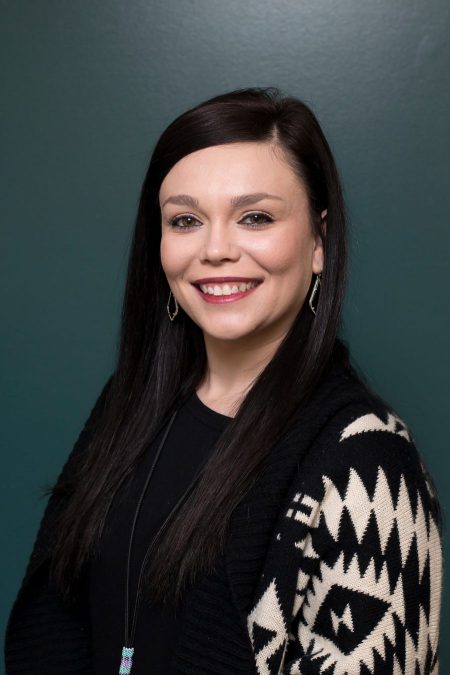
Citizen Potawatomi Nation’s House of Hope is a domestic violence program that helps victims of physical, emotional and financial abuse, and stalking.
The program provides assistance locating emergency shelter, parenting education, resources and referrals, support groups, court advocacy, and safety planning -all with a guiding hand from employees like domestic violence adult and child advocate Ashlee May.
Staff welcomes anyone experiencing abuse in Pottawatomie or Cleveland County, regardless of age, sex, religion or gender to House of Hope’s program. The House of Hope shelter is designated for women and their children seeking safety as a result of sexual assault and/or intimate partner violence. Women and children seeking shelter from anywhere in the United States are eligible to stay at the House of Hope. There is space for both individuals and families, for those with children. A typical stay lasts about 30 days.
“I always say, ‘Right now, I know that you are a victim, but when you leave here, you will be a survivor,’” said May. “Just being a part of that journey, I think, is big.”
Security and self-determination
“A lot of these women are coming from an environment in which they didn’t get to make their own decisions,” she said. According to House of Hope’s website, that kind of control signals emotional abuse.
After a day in the shelter to decompress, residents discuss the goals they want to accomplish with May. Clients most commonly want to live independently, own their own car and land a job.
“I’ve been in the field now for seven years. I’ve learned that they know their story better than anyone and that they can tell me what they want to do,” May said. “It’s not up to me.”
Her office houses a table and chairs where she meets with clients. Instead of a desk, a roundtable creates a level playing field between her and the person she is helping.
“I always try to make them feel really comfortable,” she said. “I also just try to maintain that I’m not any better than them.”
They often feel embarrassed, vulnerable and ashamed of their situation. Eliminating a display of authority creates an environment more adept to vulnerable, honest conversation.
May helps them develop short and long-term goals, whether it is grocery shopping alone for the first time in months or leasing an apartment away from their assailant. Nothing is too big or too small.
Back to CPN
In high school, May worked at CPN’s FireLake Discount Foods. During college, she completed internships with the Tribe’s Domestic Violence and Indian Child Welfare programs. She graduated from East Central University in Ada, Oklahoma, with a Bachelor of Social Work.
“I always knew I wanted my career to bring me back here,” May said. “Just the people that I was surrounded by, I always felt like this was like home in a way.”
She worked for the Oklahoma Department of Human Services for two years, before landing a job with CPN’s House of Hope in October 2013. Since then, the program expanded adding a shelter in September.
The staff is now thankful for the ability to offer victims a place of refuge overnight.
Sustained recovery
As an assignment in college, May collected resources for domestic violence victims around the area. The accumulation continued into her career, and it now fills a four-inch thick, purple binder. She organized it by type of resource, location and whether it is tribal or nontribal.
If a client needs assistance with child care from the Oklahoma County Department of Human Services, a CPN court protective order, the location of the nearest clothes closet, utility assistance or a counseling appointment with another Native American tribe, it is all at the tips of May’s fingers.
She suggests CPN resources whenever possible, including Tribal jobs, to help clients gain and sustain independence. She shares the binder with interns and adds to it as she learns about ways to support the clients they serve.
“At work, if I have downtime, I’m always looking at new resources just to better help my clients because I feel like they ever-evolve,” she said.
Former residents occasionally check in and excitedly describe earning their first paycheck at a new job or unpacking in a new apartment.
“Those always are the ones that make me smile and keep me going,” she said. “I’ve always wanted to be a social worker — ever since I was a little girl.”
Learn more about CPN’s House of Hope program by calling their 24/7 crisis line 405-878-4673.
